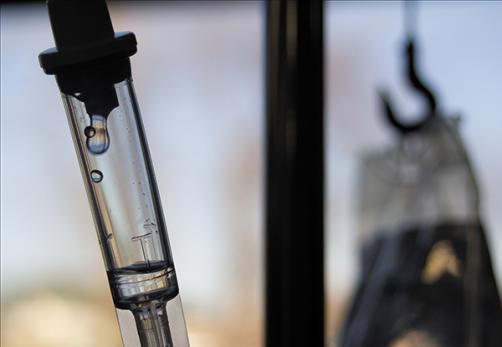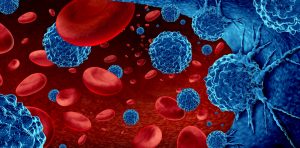
Remembering the patient in the Cancer Drugs Fund debate
pharmafile | September 5, 2014 | News story | Medical Communications, Sales and Marketing | Beating Bowel Cancer, Cancer Drugs Fund, Kadclya, Roche
Today Simon is a bowel cancer patient who is able to enjoy his weekly round of golf.
After receiving the dreadful news in 2010 that his bowel cancer had returned and spread, his prospects of being alive for much longer than a few months looked bleak.
Simon was told his only hope was to be treated with the life-extending drug which would help shrink his tumours and enable him to receive surgery.
It was the Cancer Drugs Fund (CDF) that was, and remains, a game changer for Simon and thousands like him. He was able to get the drug he needed and was successfully treated and received major surgery to remove his tumours. Simon is still with us, still well and able to live a full and active life – and this is thanks to the CDF.
Yet, when the Fund was introduced almost four years ago, there were dire predictions that it would make NICE redundant and undermine, even bankrupt, parts of the NHS. There would be an outcry that cancer was gaining at the expense of other conditions and the floodgates of demand would be unleashed.
The sky would be the limit and that was clearly unsustainable, but the reality has been different. The Fund has allowed doctors to have conversations with their patients that had previously been denied to them, creating a new bond of doctor and patient trust and confidence.
Doctors are now able to talk about all the clinically appropriate treatment options, rather than being forced to leave some off the table. Four years on from the Fund’s introduction, experience allows us to clearly recognise that cancer treatment is about giving patients options.
Take Hazel, who was able to shrink her liver metastases to a point that her primary tumour could be addressed. Hazel’s quality of life for her remaining year of life was massively enhanced, she was able to be productive in many ways, spend time with family and friends, support other bowel cancer patients and face her inevitable but delayed end more pain free than she would otherwise have been able to.
World has moved on since NICE’s creation
I do have some sympathy with those who say that the Fund has led to a confused world, where NICE’s role as the sole arbiter has been challenged by a second court of decision. We now have a world where NICE is routinely challenged about its decisions.
It is a fact that the world has moved on since NICE’s establishment as a world leader in evaluation and assessment. There are many of the view that it needs to learn from recent years, and update its practices and decision-making to regain the faith of patients, charities and clinicians.
I have limited sympathy with those who say that the Fund provides a narrow benefit, that we are using the money pointlessly, and that it is unfair. The CDF was a bold political decision, taken to address the repeated headlines when NICE rejected life-saving or life changing new cancer drugs, leaving patients without any hope. Patients became angry as drug after drug was rejected for funding and they were told it was because they were seen as of little benefit to them.
Such statements flew in the face of what their doctors were telling them; that there were more targeted treatment options open to them that could successfully treat their own individual cancer, rather than having to receive a ‘one size fits all’ treatment.
The Cancer Drugs Fund was the response to all this. It gave patients hope that they would get a second or even third chance to deal with their cancer. It also gave politicians relief from the constant negative headlines – something we would do well to remember.
Issues with NICE and pharma
Today, the world has changed. There is a growing consensus that NICE is stuck in the past when it comes to its own assessment process. Its financial measures haven’t kept pace with inflation. Its much awaited value-based assessment process has still to be delivered, ten months after it was promised.
Its ability to engage with patients and the charities dealing with specific cancers is doubted. NICE is not dead, but it is fundamentally flawed in some of its approaches and attitudes. Alongside this, and more positively, it is undeniable that the Fund has benefitted many and we now can learn a great deal from the 55,000 individuals who have received treatments previously denied to them. This huge data source now gives us a previously unavailable ability to assess the real benefit of new cancer drugs.
On the other side, the pharmaceutical companies need to recognise that price has become an even more central issue. Their over-riding commercial need to bring new drugs to our market is a problem. Their need to keep the true price of their new drugs a secret from all but a few inside the NHS, a price set through individual deal-making, is a real issue.
It means that the highest possible price is the one that features in media headlines. Recent maddening decisions to price some drugs at many tens of thousands have put a clear, easy-to-hit target on the back of some companies, and haven’t done any favours for those of us that argue new drugs are vital for patients.
Common sense needs to prevail if patients aren’t to be continually denied the drugs that can successfully treat their cancers. All parties involved in the process (NICE, pharma companies, NHS England, the Department of Health, politicians and health charities) now need to work together to develop a new approach for getting the right treatments to the right patients. The Cancer Drugs Fund may be a sticking plaster but no one should advocate removing the plaster and letting the wound fester.
No monopoly on expertise
Patients like Simon deserve to know that they are not the exception. There needs to be a new understanding that the NHS cares about and will deliver for all cancer patients. Patients like Lisa, who 18 months ago was told her bowel cancer had spread to her liver. Her prospects were not good as her tumour had grown to a point that surgery to remove it was not an option. Her cancer was put into a box called ‘incurable’.
Fast forward to today when Lisa’s outlook is far more positive. It was Lisa’s treatment with a drug made available under the Fund that was a turning point for her. The drug significantly reduced her tumours which then opened the door to other treatment options to target what remained. Lisa’s life and outlook is better as a result.
For the sake of patients all sides must be willing to work together. No side has the monopoly on expertise. We each have something of value to bring. It is now time to get everyone round the table to see what we have learned from the last four years.
We need to agree some clear principles and make some tough decisions where necessary. Above all we all need to be fair, open and clear that cancer patients deserve a more certain future.
Mark Flannagan, chief executive of Beating Bowel Cancer, speaking to Pharmafile about the Cancer Drugs Fund
Related Content

FDA approves Roche’s HPV self-collection screening option
Roche has announced that the US Food and Drug Administration (FDA) has approved its human …

Roche’s Alecensa approved by FDA as lung cancer treatment
Roche has announced that the US Food and Drug Administration (FDA) has approved Alecensa (alectinib) …

Genentech’s Columbi meets primary endpoint in phase 3 trial for lymphoma treatment
Genentech, part of the Roche Group, has announced that its phase 3 STARGLO trial has …







